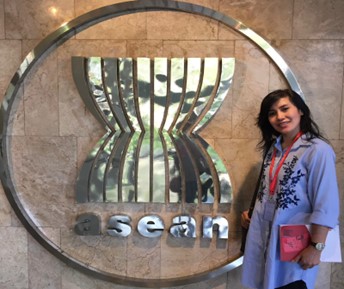Introduction
For some time now, we have argued that by systematically linking actors to structural issues, we can shed light on why some regions develop better (or worse) than others. In other words, drawing on critical realism, we are interested in the causal power of human agency in explaining temporally sequenced events shaping regional development.
In regional development studies, many concepts have been adopted to specify the meta-concept of agency, including, for example, place leadership; institutional entrepreneurship; policy entrepreneurship; governance entrepreneurship and innovative entrepreneurship.
However, as is often the case, emerging concepts and approaches first remain fuzzy, too abstract for many to understand or operationalise, and poorly connected to more established theories.
While the rapidly emerging literature on agency has increased our understanding of what people do or fail to do for their cities and regions, many scholars have faced challenges incorporating novel conceptual lenses in a discipline more accustomed to studying structures.
In this Blog, we briefly summarise what we learnt when editing a special issue for Regional Studies on ‘agency and regional development against all odds’. We use 27 review reports as empirical material to highlight the issues the authors (including ourselves) found challenging.
Evolutionary learning
We all have experience with good and bad reviews. Commonly, we applaud the favourable reviews as positive feedback and the unfavourable reviews as negative feedback. This is human.
However, we should be able to put our emotions aside and welcome all the reviews helping us to learn about our work as positive. Sometimes, a scholarly attack against our dearest ideas or bashing of painfully collected and analysed empirical data may be a significant push to learn, which is, in our understanding, positive feedback.
Conversely, an uplifting review report tickling scholarly egos may lock us into our thinking and turn into negative feedback. A personal cognitive lock-in often comes disguised in praise. We recommend adopting an evolutionary view on review reports – anything that helps us to learn makes us stronger.
The procedure
We analysed 27 first-round review reports for our special issue, including the ones we received as guest editors for the submitted papers and those we received for the papers we authored with our colleagues (managed by the overseeing editor of Regional Studies).
We approached all the review reports as sources of positive feedback. Their analyses were sharp, and in the first round, recommendations ranged from major changes to rejection.
Overall, the reviewers did excellent work to improve the quality of the papers. They made many necessary, sometimes painful observations, pushing the authors to sharpen their thinking and polish their writing.
We compiled all the review reports into a file and imported them into Atlas.ti (qualitative data analysis software). The text contained 95 pages, which we analysed by drawing on deductive coding.
Reading all the submitted papers and the review reports, as well as writing recommendations for the overseeing editor gave us a clear overview of the papers’ pros and cons. Of course, the common understanding of the anatomy of a good journal article also influenced our deduction.
The codes
Using Atlas.ti allowed us to challenge or verify our preunderstanding and search for omitted issues. It also allowed us to identify issues recurring in more than one paper. The deductive codes were (a) anchoring to the literature, (b) originality and contribution to the literature, (c) theoretical precision and (d) the quality of empirical analyses.
Drawing on the deductive codes, the analysis surfaced the following issues we discuss briefly below: articulating the contribution and anchoring to the literature, conceptual layering and drift, and slippery research questions.
Despite the negative tone, we do not imply that the first submissions were poor quality or that all the submissions suffered from all the identified issues. Instead, we aim to show the issues the reviewers returned to repeatedly, in one way or another.
Overall, our analysis highlights the importance of the very basics of good research. Solid research questions supported by well-grounded theory and well-defined core concepts are the cornerstones of a good study of human agency.
Articulating the contribution
We firmly believe every scholarly piece should aim at contributing to the literature, be the contribution major or minor, seminal or incremental, long-term or short-term. However, of course, it is impossible to know in advance what makes a big splash and what remains unnoticed.
Furthermore, whatever happens to an individual article, it is the entire village and the collective effort – many articles and books – that make the research a significant force and an enjoyable endeavour.
Many special issue authors were shy about showing their contributions to the literature. They struggled to anchor their work on the relevant literature, or perhaps they struggled with identifying it. They aimed to engage with too many theories and forgot that their work was supposed to be about agency. An overly expansive anchoring to the literature quickly leads to excessively general arguments.
As one of the reviewers concluded, “It (a paper) seeks to cover everything, and it fails to provide an in-depth analysis of everything. So many questions remain unanswered”. If the research questions remain unanswered, there is no contribution. All this leads to the core question of articulating the contribution – “how do your findings support and challenge existing theory” (Reviewer), being aware of what the theory is that a paper aims to develop.
“What is the main contribution to the literature, and to what literature?” (Reviewer)
Temporal disconnect
The disconnect may also be temporal. Identifying and articulating a contribution calls for keeping pace with the continuously evolving literature. In some cases, the authors did not acknowledge the rapid development of the field and argued for a gap that existed in the literature 10–15 years ago.
As one reviewer put the temporal disconnect, “[I]t’s a bit weird that you talk about recent years yet cite a paper from 16 years ago” (Reviewer). In summary, we should boldly engage in a scholarly debate, know the relevant literature, and aim to contribute to a selected theory regarding human agency.
“The disconnect makes it difficult to distinguish the theoretical contribution of the paper: There is actually quite substantial overlap and repetition between the arguments in the introduction and what is concluded at the end of the paper”. (Reviewer)
Hero of the dish?
Many initial special issue submissions suffered from agency suppressed by other conceptual frames, resulting in conceptual layering and drift.
“I don’ t think it’s a good idea to bring so many terms into one paper, which only confuses your readers. The whole paper is jumping from one theory to another and from one type of terminology to another type. In doing so, you can’t talk enough about every theory”. (Reviewer)
One reviewer concluded his report by asking what concepts are central to the framework in a paper he reviewed – it is a fundamental question. Moreover, he asked which concepts support the core of the study and what concepts briefly present the conceptual context, again, an excellent question. As was: What is the unit of analysis?
The questions reminded one of us (Markku) about a competitive reality show, Master Chef Australia, in which the judges continuously ask contestants what the hero of the dish is and what ingredients elevate the hero. Indeed, separating the conceptual hero from the supporting elements is crucial.
Conceptual layering and drift
Suppose the anchoring to the literature is too ambitious. In that case, conceptual layering and consequent drift are inevitable, structural explanations suppressing the search for the powers of human agency.
All too often, concepts and approaches promising to focus on agency are added atop existing conceptual frameworks without adequately conceptualising them for the study.
We should identify the core concepts and make them into heroes. All too often it is spices (supporting or contextual concepts) that surface from a paper, covering the core concepts underneath. Conceptual layering may elude the original ambition to study agency and lead to conceptual drift, which, for a reader, may appear as conceptual confusion and an overly complex conceptual framework.
Moreover, ontological commitments may remain undiscussed or even unrecognised. No wonder reviewers ask what the core of an article is or what it is all about.
In sum, instead of delving deep into human agency, many authors add it atop theories they have used earlier and know well: an agentic framework losing explanatory power and a paper becoming overly descriptive.
Perhaps the authors are not willing to ‘sacrifice’ safe conceptual terrain to explore the unknown landscape in more depth, leading to an unbalanced conceptual framework that highlights the supporting (contextual) concepts more than those focusing on agency. If this happens, it will be challenging to explain the contribution, and the article will become more confusing than clear.
“The paper needs a more focused conceptual framework, including a balanced discussion of A, B and C [concepts removed for anonymity]. Your theoretical argument does not support the empirical analysis as well as it should”. (Reviewer)
Slippery research questions
The difficulties briefly discussed above may result from a slippery research question or the complete absence of a research question. A solid research question is essential to keeping an eye on human agency.
As one of the reviewers reminded the authors, an article should answer research questions by drawing on the empirical material, but this is not enough. It must also return to the literature, explain how the findings relate to what we know, and add value to the current literature on human agency.
In summary, having a slippery research question makes it difficult to contribute to the literature and heroify the core concepts.
“It might be worthwhile to mention the key research question and explain to the readers the added value of having a new perspective related to the role of X [removed for anonymity], as you mention”. (Reviewer)
Conclusion
We hope nobody perceives this blog as disappointed or pessimistic. It is not.
We decided to use review reports for collective learning, and as we all know too well, reviewers tend to point at weaknesses instead of strengths. The authors responded brilliantly to the reviewers’ recommendations and showed an excellent capacity for evolutionary learning.
Research on agency in regional development undoubtedly increases our understanding of the relations and interplay between human actions and socially produced structures. The articles published in the special issue (see Sotarauta & Grillitsch, 2023b) follow this appreciation by focusing, in their ways, on purposeful and meaningful actions performed by human actors to promote regional development in their parts of the world.
The work continues – to improve our capacity to study human agency, we must take pains to clarify meta-theoretical commitments, elaborate middle-range theories, and experiment with a variety of methods.
The growing body of work on the relationships between human agency and structures is an exciting ontological, theoretical, and methodological programme in the making.
The blog is based on:
Grillitsch, M. & Sotarauta, M. (2020) Trinity of change agency, regional development paths and opportunity spaces. Progress in Human Geography. 44(4) 704-723.
Sotarauta, M. & Grillitsch, M. (2023a) Studying Human Agency in Regional Development. Accepted to be published in Regional Studies.
Sotarauta, M. & Grillitsch, M. (2023b) Special Issue: Agency and regional development against all oddsAccepted to be published in Regional Studies.
Sotarauta, M., & Grillitsch, M. (2023c) Path tracing in the study of agency and structures: methodological considerations. Progress in Human Geography, 47(1) 85-102
The special issue articles
Blažek, J., & Kveton, V. (2023) Towards an integrated framework of agency in regional development: the case of old industrial regions, Regional Studies. doi:10.1080/00343404.2022.2054976.
Grillitsch, M., Sotarauta, M., Asheim, B., Fitjar, R.D., Haus-Reve, S., Kolehmainen, J., Kurikka, H., Lundquist, K.-J., Martynovich, M., Monteilhet, S., Nielsen, H., Nilsson, M., Rekers, J., Sopanen, S., & Stihl, L. (2023) Agency and economic change in regions: using qualitative comparative analysis (QCA) to identify routes to new path development. Regional Studies. doi:10.1080/00343404.2022.2053095.
Huggins, R., & Thompson, P. (2023) Human agency, network dynamics and regional development: the behavioural principles of new path creation, Regional Studies. doi:10.1080/00343404.2022.2060958.
Kurikka, H., Kolehmainen, J., Sotarauta, M., Nilsson, M. & Nielsen, H. (2022) Regional opportunity spaces – observations from Nordic regions. Regional Studies. doi.org/10.1080/00343404.2022.2107630
Sotarauta, M., & Grillitsch, M. (2023b) Editorial: Studying Human Agency in Regional Development. Special issue: Agency and regional development against all odds’. Regional Studies.
Steen, M., Lund, H. B., & Karlsen, A. (2023) The role of state in path development: a longitudinal study of two Norwegian manufacturing regions. Regional Studies, doi.org/10.1080/00343404.2023.2195880
Suitner, J., Haider, W., & Philipp, S. (2023) Social innovation for regional energy transition? An agency perspective on transformative change in non-core regions, Regional Studies, doi: 10.1080/00343404.2022.2053096.
Weller, S., & Beer, A. (2023) State structures and the limits of agency: governing the transformation from coal in Australia, Regional Studies, doi: 10.1080/00343404.2022.2047918.






Kommentit